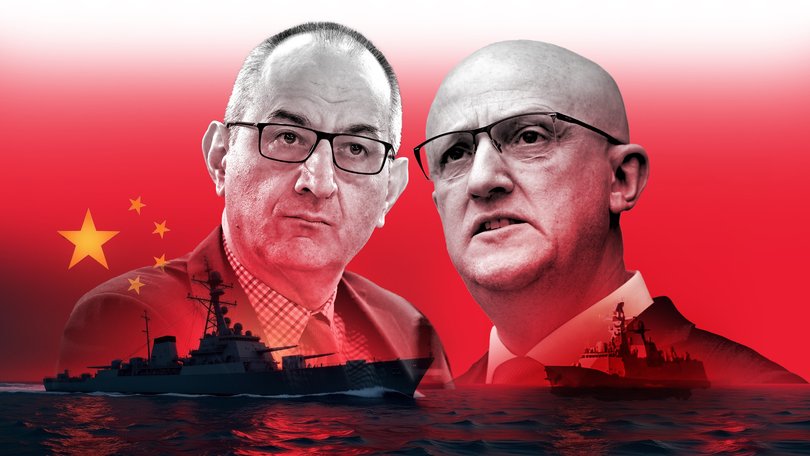Former Home Affairs boss Mike Pezzullo claims China still the most capable threat against Australia
China remains the most potent and capable threat to Australia, with its ability to carry out hostile attacks outstripping that of Iran and Russia, former Home Affairs boss Mike Pezzullo has warned.

China remains the most potent and capable threat to Australia, with its ability to carry out hostile attacks outstripping that of Iran and Russia, former Home Affairs boss Mike Pezzullo has said in response to a speech by ASIO’s spy chief.
Mike Burgess did not once name China during the speech on Tuesday evening, during which he focussed on the threat to social cohesion through the rise of extremist groups, and likened the tactics of Islamist group Hizb ut-Tahrir to those of neo-Nazis.
However, he took aim at the super power in the questions afterwards, accusing China of widespread intellectual property theft and political meddling.
Sign up to The Nightly's newsletters.
Get the first look at the digital newspaper, curated daily stories and breaking headlines delivered to your inbox.
By continuing you agree to our Terms and Privacy Policy.The Nightly understands Mr Burgess will be giving a speech dedicated to China in coming weeks.
Mr Pezzullo, who authored the 2009 Defence White Paper, said that the spy agency would need to remain focused on the threats from hostile state actors, and specifically China, “in the lead-up to, or during, a geopolitical crisis or a military conflict.”
“The Director General is drawing attention to the fact that more actors, a greater range of ideologies, and a proliferation of advanced technologies and techniques are creating security challenges for Australia,” Mr Pezzullo said.
“As a consequence, our security environment is deteriorating.
“The challenge for policymaking is to differentiate the risks, so that the greatest harms are dealt with as a priority.”
Mr Pezzullo said China outstripped Iran and Russia in terms of the threat and capability to carry out hostile acts.
“In terms of capacity and motivation to do harm, hostile state actors remain the most potent, with China standing alone as the most capable and impactful actor,” he said.
“Russia and Iran are in the next tier, and also need to be watched carefully.
“Given finite resources, ASIO’s efforts will need to be focused increasingly on hostile state action, including that which might be undertaken by China in the lead-up to, or during, a geopolitical crisis or a military conflict.”
He again called for the government to prepare an annual security threat assessment.
“To this end, the Government should commission a national security threat assessment, to which ASIO would contribute, and which would form the basis of an annual national security statement to the House.
“Much like the annual Budget frames the national economic story, including the government’s policy response, such a statement to the House would frame the national security discussion and policy response in an integrated, coherent, and prioritised fashion.”
While Mr Burgess warned in his Lowy Institute lecture that three countries were willing to carry out political assassinations on Australian soil against their diaspora and dissident communities, he did not name who they were.
Suspects include China, Iran, India, Belarus and Russia.
He also revealed that ASIO had foiled an attempt to recruit several Australians into betraying their country, wanting intelligence on Australia’s economy, critical minerals and AUKUS.
When it was pointed out to Mr Burgess that he had not made a single mention of China in his speech, the ASIO boss said: “I did not mention China in my remarks today, but how do you know that I was not talking about things China did in my remarks today?”
He then went on to say that China did more than just the accepted level of spying that countries conduct against each other, accusing the CCP of stealing intellectual property and meddling in Australia’s political systems.
“We don’t actually interfere with political systems, and we don’t undertake high-harm activity,” he said.
He also revealed, under questioning, that Chinese officials complain to the government about his statements about their behaviour, an example he said, of the Chinese failing to understand Australia’s democratic system and his status as a statutory appointee, meaning he operates at a distance from government.
The focus of Mr Burgess’ speech was social cohesion and the growth in activist and extremist movements that are corroding safe debate and protest.
The government, which has sought a “stabilisation” of ties with China to restore and increase trade, declined to comment.

